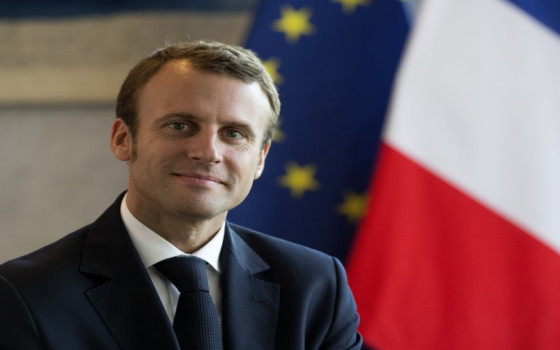
European Greens: "There is a way out of the political chaos in France" .. Media reports: Macron is in trouble days before Trump and other international figures arrive in Paris

- Europe and Arabs
- Thursday , 5 December 2024 10:39 AM GMT
Brussels - Paris: Europe and the Arabs
The fall of the Barnier government raises the crucial political question of "which way to go" in Macron's camp.
"It is shameful that Prime Minister Michel Barnier has asked for the support of the far-right National Rally bloc led by Marine Le Pen, instead of seeking stability with democratic and progressive forces," says Melanie Vogel, co-president of the European Green Party and member of the "Environment" group in the French Senate. According to a statement by the Greens distributed in Brussels and received by us, it also says: "The Green group in the French parliament has put on the table a proposal to form a government capable of finding a majority in the democratic camp - known in France as the "Republican Front", i.e. those who refuse to cooperate with the far right. This government must prepare for the next elections, which must be held according to proportional representation.
Melanie Vogel: "It is clear that the French Greens are ready for this. The big political question now is for members of French President Macron's camp: What do they oppose more? The political orientation of the new Popular Front, or the far right? If Macron's camp wants it, it is possible to pull France out of chaos and end the erosion of its democracy."
The European Green Party gives its full support to the New Popular Front (NFP), the alliance in which the French Greens from Les Ecologistes play a key role. Thomas Weitz, co-president of the EG, concludes: "The French Greens are campaigning for social justice, climate ambition and the strengthening of democracy and public freedoms. They offer an alternative to a government dominated by the far right. Let us not forget that in the last French elections in June, 65% of the French voted for democratic parties and values. The short-lived government of Michel Barnier fell last night, as the far-right and far-left blocs in the French parliament united to pass a vote of no confidence in the prime minister. The vote was also a rejection of Barnier’s proposal for a tough national budget aimed at curbing France’s ballooning deficit. The escalating political crisis in the European Union’s second-largest economy leaves the bloc politically vulnerable and the eurozone exposed at a time when Germany is distracted by upcoming elections and Donald Trump is preparing to take office in the United States. What happens next? After Barnier formally tenders his resignation to Emmanuel Macron this morning, the French president will be under pressure to act with extraordinary speed in naming a new prime minister, if only to put an end to growing calls for his resignation. Macron may well name Barnier again, or at least ask him to hold the fort for a while as caretaker. The president will address the French nation on television at 8 p.m. tonight. There’s another reason Macron is feeling the heat: The president may want to show up and name a successor to Barnier to give a sense of That his country is not in complete disarray when Trump and other world dignitaries attend the reopening of Notre Dame Cathedral in Paris this week.
Is it time to seal the Mercosur deal? The European Commission could capitalize on the French chaos this week by signing the Mercosur deal, a massive trade agreement between the EU and several Latin American countries that France strongly opposes.
Montevideo meeting: The Financial Times, citing unnamed officials, reported last night that Commission President Ursula von der Leyen will soon fly to the Uruguayan capital where she is expected to sign the deal. We reported that Friday was the most likely day to do so, at the Mercosur summit. But going behind France’s back would likely inflame anti-EU sentiment in the country at a critical moment.












No Comments Found